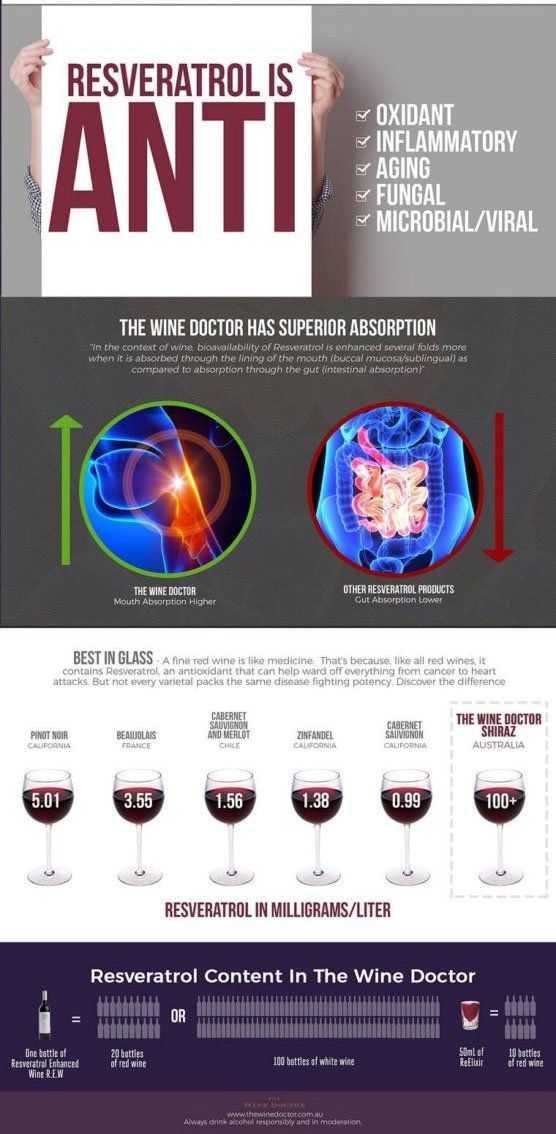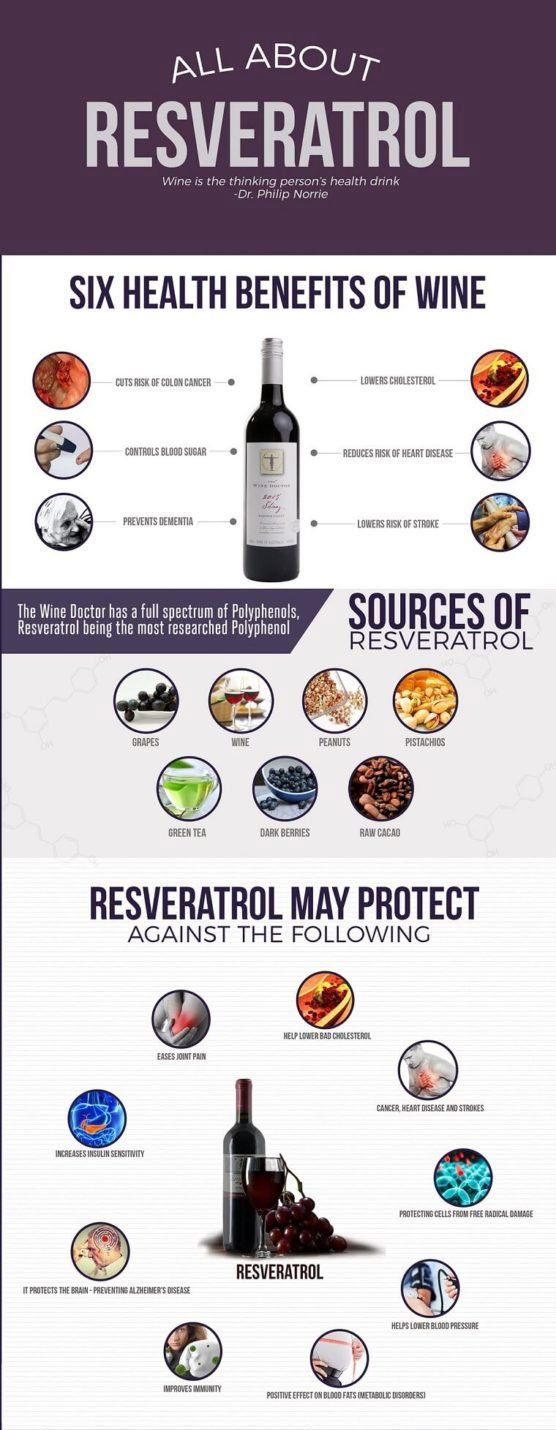THE WINE DOCTOR
What is Resveratrol?
Resveratrol Enhanced Wine
What is Resveratrol?
One of the main ways the body ages or degenerates is by oxidation, the same process that causes rusting. That is why there is now great interest in antioxidants of various types, because antioxidants are substances that retard or slow down this deterioration by oxidation.
The standard benchmark antioxidants that humans take are Vit C and E, but they only reduce oxidation by up to 20%. Other organic compounds such as amines (nitrogen containing organic compounds derived from ammonia) and phenols (a group of organic compounds which contain hydroxyl or OH attached to a carbon atom in a ring of carbon atoms) also act as antioxidants.
The main antioxidants in red wine are epicatechin, quercitin and more importantly the polyphenol Resveratrol. These are nature’s most potent antioxidants because they can reduce oxidation by up to 100% i.e. stop it altogether as shown by Dr. Frankel at the University in California at Davis in California.
They occur mainly in the grape skin extract to protect it from external diseases such as fungus during a very moist vintage.
The human body uses many complex biochemical pathways and reactions to function; but these reactions result in waste products such as free radicals (molecular compounds that contain an extra unpaired electron).
These free radicals are the body’s terrorists and cause biological havoc which helps contribute to our degenerative ongoing diseases such as cancer, dementia, diabetes, vascular disease (heart attack and stroke), macular degeneration (most common cause of blindness in people over 65) and arthritis.
The fermentation process, in making wine, produces alcohol and liberates these antioxidants from the grape skin, which also block the effect of these free radicals.

Wine as a delivery medium
Resveratrol can be consumed in the form of tablets or capsules and absorbed through the intestines. In this case the Resveratrol in the gut gets taken to the liver via the portal blood system and metabolized, leaving very little in the circulation to then reach the various cells of the body.
The best way to absorb Resveratrol is via the buccal mucosa (lining of the mouth), which allows for direct entry in to the blood stream. Absorption of Resveratrol via the buccal mucosa is better 250 times better than intestinal absorption.
The normal Resveratrol content of wine is 1-2 milligrams per litre for whites and 4-6 mg/L for reds. The antioxidants in wine are not stored in the body, so it is regular consumption, in moderation, of wine that delivers a significant dose of Resveratrol.
Moderate consumption can be defined as a standard 750ml bottle of wine each day, shared between two people, with women advised to drink a little less than men.




